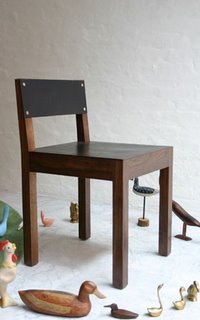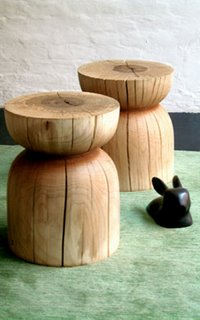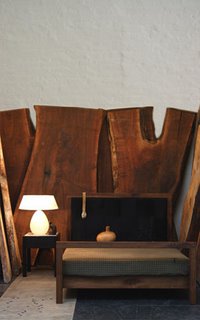Sustainable Design
 Hardwood is one of the most sustainable products we have today, which is wonderful since there are few products that inspire such universally positive, even visceral, responses. Hardwood comes from trees that have leaves, not needles. The produce fruit or nuts in the summer, loose leaves in the fall and are dormant in the winter. American forests grow by 10.2 billion cubic feet a year, but we currently use only 6 billion cubic feet, thereby allowing us to safely use this natural resource. (Numbers come from the US Forest Service.)
Hardwood is one of the most sustainable products we have today, which is wonderful since there are few products that inspire such universally positive, even visceral, responses. Hardwood comes from trees that have leaves, not needles. The produce fruit or nuts in the summer, loose leaves in the fall and are dormant in the winter. American forests grow by 10.2 billion cubic feet a year, but we currently use only 6 billion cubic feet, thereby allowing us to safely use this natural resource. (Numbers come from the US Forest Service.)Over the last 50 years, our forests have grown by nearly 90%. (This is due in part to the loss of farm land and open space.) US Hardwood forests cover 269 million acres of property. Of that land, 73% is privately owned by a total of 7 million families, each owning an average of 50 acres. 11% is held by the forest industry and the rest by federal, state and local governments.

In other words, feel good about adding hardwood floors to your new house, hardwood cabinets to your new kitchen or contracting a new bedroom set made of Sycamore or Ash. It’s gorgeous, affordable and sustainable.
Here’s the list of American hardwoods:
Alder, Ash, Aspen, Basswood, Beech, Birch, Cherry, Cottonwood, Cypress, Elm, Gum, Hackberry, Hard Maple, Hickory, Pecan, Pacific, Red Oak, Poplar, Sassafras, Soft Maple, Sycamore, Maple, Walnut, White Oak, Willow


<< Home